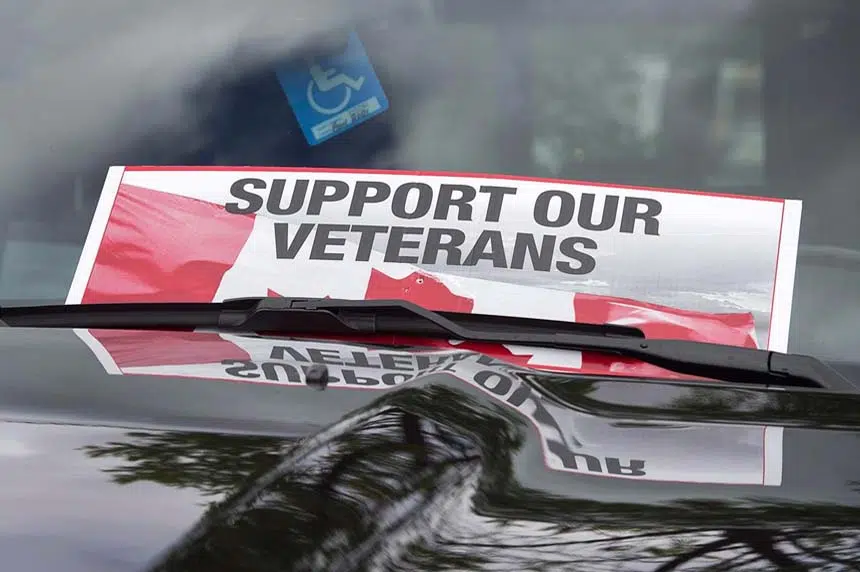OTTAWA — The Trudeau government is promising to provide injured veterans with more financial compensation and assistance in the form of long-promised lifelong disability pensions for those injured in uniform.
Veterans Affairs Minister Seamus O’Regan unveiled the new pensions Wednesday, more than two years after the Liberals promised them during the last federal election — and only days before Christmas.
The changes are complex and multi-layered, and represent the most significant overhaul in the benefits and services available to disabled veterans in more than a decade.
They are expected to provide more money to injured veterans than the current suite of benefits, particularly the most severely disabled who are unable to work and continue to suffer from service-related injuries.
But the Liberals’ plan offers only modest increases for those on the other end of the spectrum, and continues to provide many veterans with less than the previous lifelong disability pensions, which were abolished in 2006.
Those pensions were replaced with a lump-sum payment and targeted income-replacement programs, known collectively as the New Veterans Charter, which was criticized as providing less financial support than before.
The lack of parity with the old pension system is unlikely to sit well with many veterans who have been demanding that the government reinstate the old system as a matter of fairness.
The new plan also won’t come into effect until April 2019, which a senior government official said was because time will be needed to pass legislation and secure the funding necessary to meet the commitment.
The Liberals were the only party to promise to re-instate lifelong pensions for disabled veterans during the last election campaign following widespread complaints from injured ex-soldiers about the New Veterans Charter.
The charter was implemented by the previous Conservative government with unanimous support from the Liberals and NDP and provided a lump-sum payment for pain and suffering worth a maximum of $360,000.
But it also included various rehabilitation and career-training programs to help disabled veterans adjust to civilian life, and income-replacement benefits for those unable to work.
Comparisons are difficult, but a high-profile lawsuit against the government that was recently thrown out by the B.C. Court of Appeal claimed veterans under the charter receive 40 per cent less than those with the previously-offered pensions.
Under the new plan, the lump-sum award will still be available to veterans who want the money right away, but they will now be able to choose a monthly payment for pain and suffering worth a maximum of $1,150 per month.
Those with severe or permanent disabilities that have had an impact on their lives will also be eligible for a new benefit worth between $500 and $1,500 per month, on top of the pain and suffering award.
Both of those benefits are tax free. The exact amount that a veteran can receive is based on the extent of their injuries or disabilities, and is not capped at a maximum amount or age.
There had been widespread fears that the Liberals would simply take the $360,000 lump-sum payment and spread it out over a veteran’s lifetime.
The government is also lumping together six different benefits for injured veterans who are having trouble finding work, or whose post-military career pays significantly less than when they were serving in uniform.
Veterans will also be able to make up to $20,000 before the income-replacement benefit starts being clawed back, and those who have served less than 20 years in uniform will see an annual one per cent increase.
Different scenarios drawn up by Veterans Affairs Canada indicate that the most severely disabled veterans will receive substantially more money through the new system than with the charter and even the old pensions.
Those with moderate injuries that have not affected their ability to rejoin civilian life or find work will also see increases over the charter, but they will be small and still amount to hundreds of dollars less per month than under the previous pensions.
Veterans had warned in the lead-up to Wednesday’s announcement that they were prepared to rally against the government if its pension plan did not provide an equivalent amount of compensation as the old system.
— Follow @leeberthiaume on Twitter.
Lee Berthiaume, The Canadian Press







